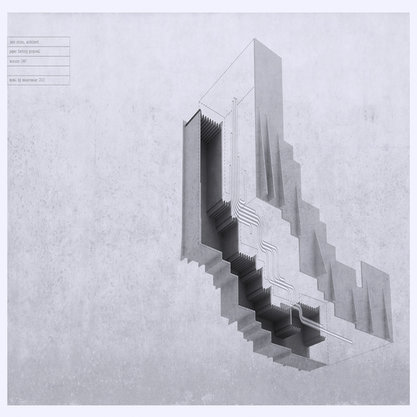Article
Hammad, Mahmoud (1923–1988) By Lenssen, Anneka
Article
Mahmoud Hammad, born in Jarabulus, Syria, was among the first Arab artists to adopt the letterforms of the Arabic language as a basis for modern compositions. His experiments predate the pan-regional 1970s florescence of horoufiyah (visual manipulations of the Arabic letter in fine art) by more than a decade, and his early Arabic writing paintings, first exhibited in Damascus, Beirut, São Paulo, and Venice in the early 1960s, deconstructed the letters to produce semi-geometric abstract compositions. Hammad would continue to explore Arabic writing for the duration of his career, though his later paintings struck a more studied balance between formal and communicative properties. Coming of age during the Syrian struggle for independence, Hammad played the roles of both artist and organizer in the Syrian art world. He started exhibiting in Damascus as early as 1939, and was a member of Studio Veronese, the country’s first fine arts club. In 1952 he was granted a study fellowship to the Academy of Fine Arts in Rome, which he completed in 1956. After returning to Syria, Hammad taught in rural schools, later joining the faculty of the new College of Fine Arts in Damascus in 1960. He became dean of the college in the 1970s, a role he retained until 1981. He died in Damascus, Syria.

